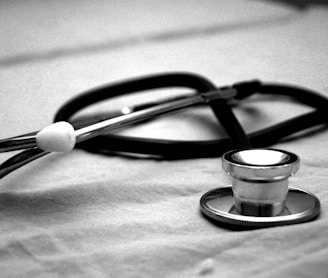UAE Medical Liability Law: Federal Decree Law No. (4) of 2016 and Cabinet Resolution No. (40) of 2019
Discover key aspects of UAE Medical Liability Law, including patient rights, standards of care, and legal procedures.
HEALTHCARE


Introduction
Access to quality healthcare is a fundamental right, and the United Arab Emirates (UAE) has been dedicated to providing world-class medical services to its residents and visitors. However, in the realm of healthcare, issues can sometimes arise, leading to questions of accountability and liability. To address these concerns, the UAE has enacted robust medical liability laws, primarily governed by Federal Decree Law No. (4) of 2016. Furthermore, Cabinet Resolution No. (40) of 2019 complements and enhances the implementation of these laws. In this article, we will delve into the key aspects of UAE medical liability law.
Federal Decree Law No. (4) of 2016 on Medical Liability
1. Legal Framework
Federal Decree Law No. (4) of 2016 is the cornerstone of UAE medical liability law. It was enacted to safeguard the rights of patients and ensure accountability within the healthcare sector. This law establishes the legal obligations and standards of care for healthcare providers and patients alike.
2. Standard of Care
One of the central elements of this law is the standard of care expected from healthcare professionals. In the UAE, healthcare providers are held to a high standard of care, requiring them to provide medical services with skill, diligence, and in accordance with accepted medical practices.
3. Informed Consent
Federal Decree Law No. (4) emphasizes the significance of informed consent. Healthcare providers must provide patients with comprehensive information about their diagnosis, treatment options, potential risks, and expected outcomes. Obtaining proper consent is a fundamental requirement in medical practice.
4. Reporting and Documentation
Healthcare professionals are obligated to maintain accurate and detailed medical records. These records play a crucial role in ensuring transparency and accountability in medical practices, serving as evidence in case of disputes or claims.
5. Medical Malpractice Claims
When patients believe they have suffered harm due to medical negligence or malpractice, they can file a medical malpractice claim. The legal process involves thorough investigations, expert testimonies, and legal proceedings, with compensation potentially awarded if negligence is proven.
6. Compensation
If a healthcare professional is found liable for medical malpractice, they may be required to compensate the patient for their losses. Compensation may encompass medical expenses, lost wages, pain and suffering, and other related costs.
Healthcare institutions can also be held liable for the actions of their employees. This concept, known as vicarious liability, ensures that medical facilities take measures to supervise and train their staff to prevent medical errors.
Cabinet Resolution No. (40) of 2019: Enhancing the Framework
Cabinet Resolution No. (40) of 2019 complements Federal Decree Law No. (4) by providing further details and guidelines for its implementation:
1. Definitions and Scope
The resolution clarifies key terms and the scope of the law, making it easier for both patients and healthcare professionals to understand their rights and responsibilities.
2. Expert Committees
It establishes expert committees responsible for reviewing medical malpractice claims, offering expert opinions that assist the courts in making informed decisions.
3. Compensation Calculation
The resolution provides a detailed framework for calculating compensation in medical liability cases, specifying the types of damages that can be claimed.
4. Statute of Limitations
It addresses the statute of limitations for filing medical liability claims, ensuring claims are filed within a reasonable timeframe.
5. Dispute Resolution
The resolution outlines procedures for amicably settling disputes between patients and healthcare providers before resorting to legal action.
6. Licensing and Accreditation
Cabinet Resolution No. (40) underscores the importance of healthcare facilities and professionals adhering to licensing and accreditation requirements, promoting the delivery of services by qualified practitioners and institutions.
Conclusion
Understanding UAE medical liability law is paramount for both patients and healthcare professionals. Federal Decree Law No. (4) of 2016, along with Cabinet Resolution No. (40) of 2019, creates a comprehensive legal framework that ensures the rights of patients, maintains high standards of care, and holds healthcare providers accountable for their actions.
By knowing their rights and responsibilities under this robust legal framework, patients and healthcare professionals contribute to a safer and more transparent healthcare environment in the UAE. These laws reflect the UAE's commitment to providing quality healthcare services and upholding the highest ethical standards in medical practice.
